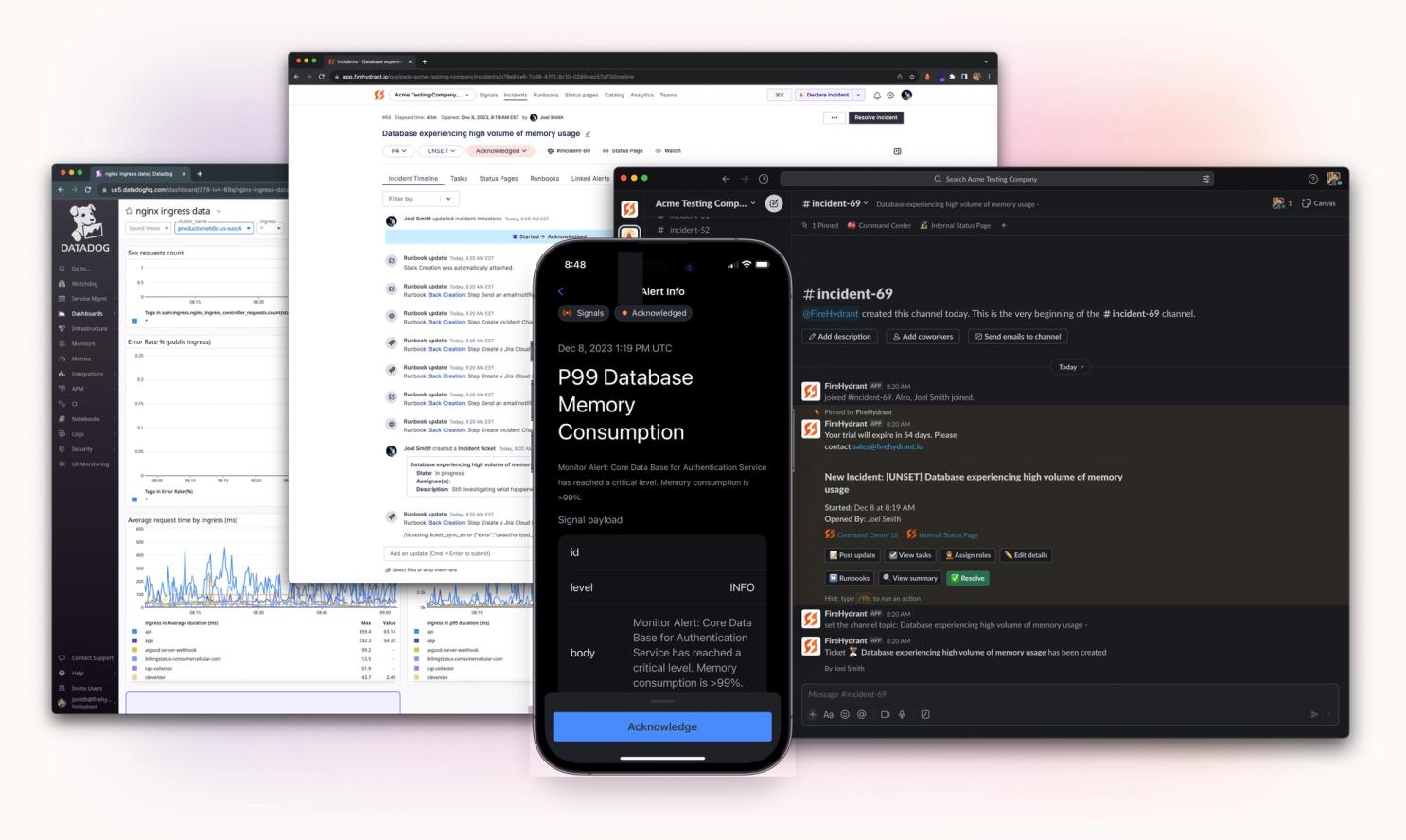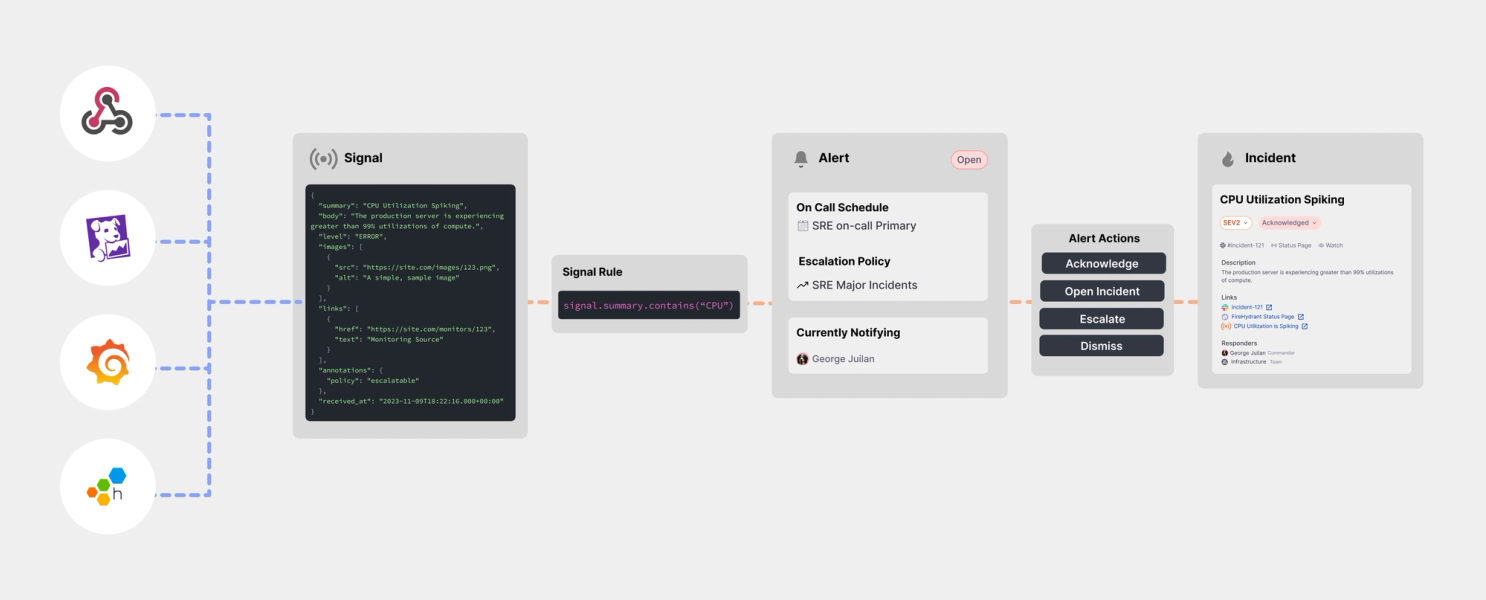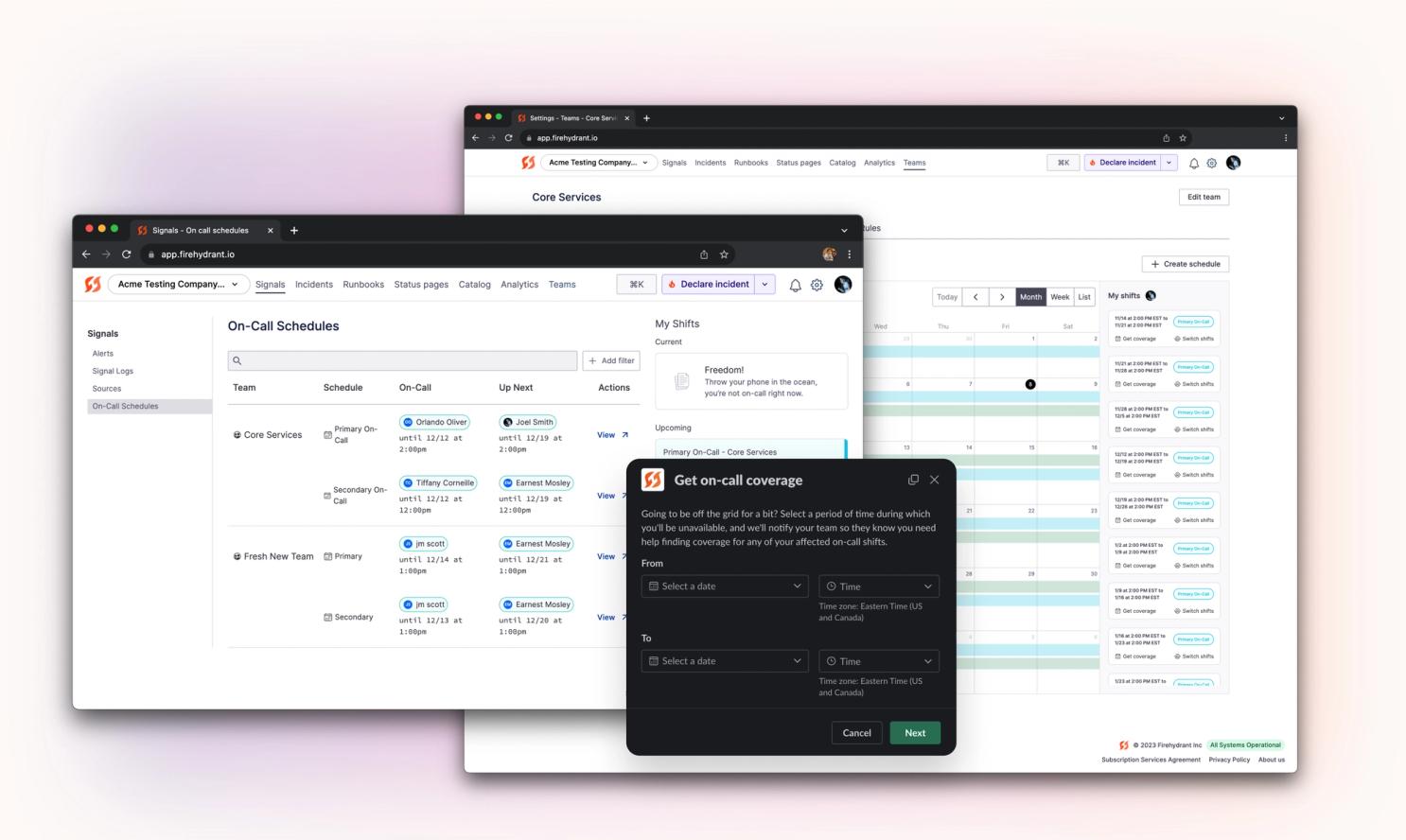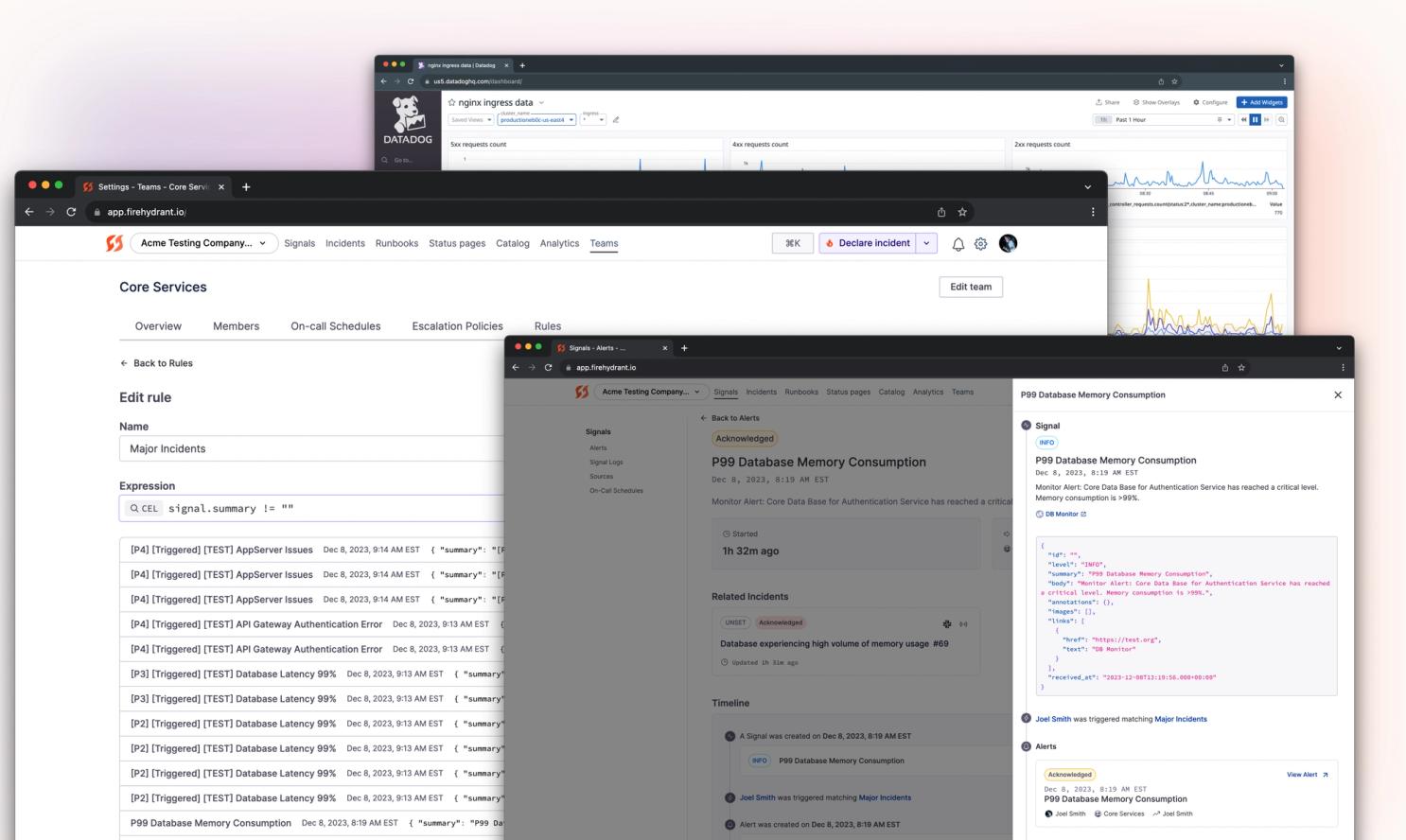Now in beta: alerting for modern DevOps teams
Signals is now available in beta for teams eager to implement a cost-effective alerting tool designed specifically for how modern DevOps teams work.

Tl;dr Signals, FireHydrant’s cost-effective modern alerting tool, is now available in beta.#tl-dr-signals-firehydrants-cost-effective-modern-alerting-tool-is-now-available-in-beta
Although FireHydrant has spent five years focused on what happens after your team (erg, I mean service 🙄) gets paged, the topic of alerting often comes up in discussions with our community. People are tired of paying big bucks for software that’s expensive, bloated, and hasn’t seen much innovation. Clearly, there’s a problem here – and we’re tackling it head on.
Earlier this year, we quietly began discussions with our customers about what a modern alternative to legacy alerting solutions should look like. And today, we’re proudly putting it in their hands for pressure testing.
Signals is now available in beta for teams eager to implement a cost-effective alerting tool designed specifically for how modern DevOps teams work. Though we’re prioritizing access for our customers, you can still join the waitlist for early access.
How does Signals work?#how-does-signals-work

Signals works exactly how you’d expect it to. Connect your monitoring tools to FireHydrant and start sending data. When that data matches a rule you create, we’ll fire an alert to the engineer on call using your escalation policy. Then, the on-call engineer decides what to do: acknowledge, start an investigation, open an incident, escalate, or dismiss it altogether.

How is Signals different?#how-is-signals-different
Page teams, not services#page-teams-not-services

No more hacks or workarounds; it's time for incident alerting tools to embrace the reality of service ownership. Signals enables true service ownership by making teams the organizing principle of your alerting setup. Teams can write their own rules to create the alerts that matter to them and the services that they own. They create and own the on-call schedules and escalation policies that help on-call engineers turn alerts into incidents when necessary. You can still page by service — Signals just uses the service catalog to route the page to the correct team.
Ingest inputs from any source#ingest-inputs-from-any-source

Signals are the events generated in FireHydrant from your automated monitoring and alerting tools. Anything that can send data to a webhook can create a Signal in FireHydrant. The signals create a data stream you can pull from to create meaningful Alerts for responders.
This all means a more clear separation between alerts and incidents. This not only decreases alert fatigue but also allows you to accurately measure metrics like alert-to-noise ratio and mean time to detect, giving you a deeper understanding of your systems.
Usage-based pricing#usage-based-pricing
Alerting tools have become notorious for their exorbitant costs. Many of us have scratched our heads, wondering why these tools have a hefty price tag. It's not just a matter of budgeting; it's about value for money. Signals prioritizes affordability without compromising quality.
With Signals, you pay for what you use. Bucket pricing means no more worrying about how to use expensive and limited per-user licenses. Simply send alerts to the people who need them.
Single platform from start to finish#single-platform-from-start-to-finish
With the addition of Signals, you can now manage incidents from ring to retro in a single, purpose-built platform. A key part of responding to incidents is gathering context about what’s causing a disruption to your services and applications. Having your alerting tool embedded in your incident management process means that your team can more quickly connect the dots between the data connected to your alerts and the root causes of your incidents.
Join the beta#join-the-beta
If you’re ready to help us build the future of alerting, please join the waitlist or contact your account executive. We’re looking for partners eager to translate their frustrations with legacy tools into direction for a modern alternative. And in exchange, we’re happily offering dedicated support throughout the beta period – including helping with migration – and early adopter pricing when it ends.